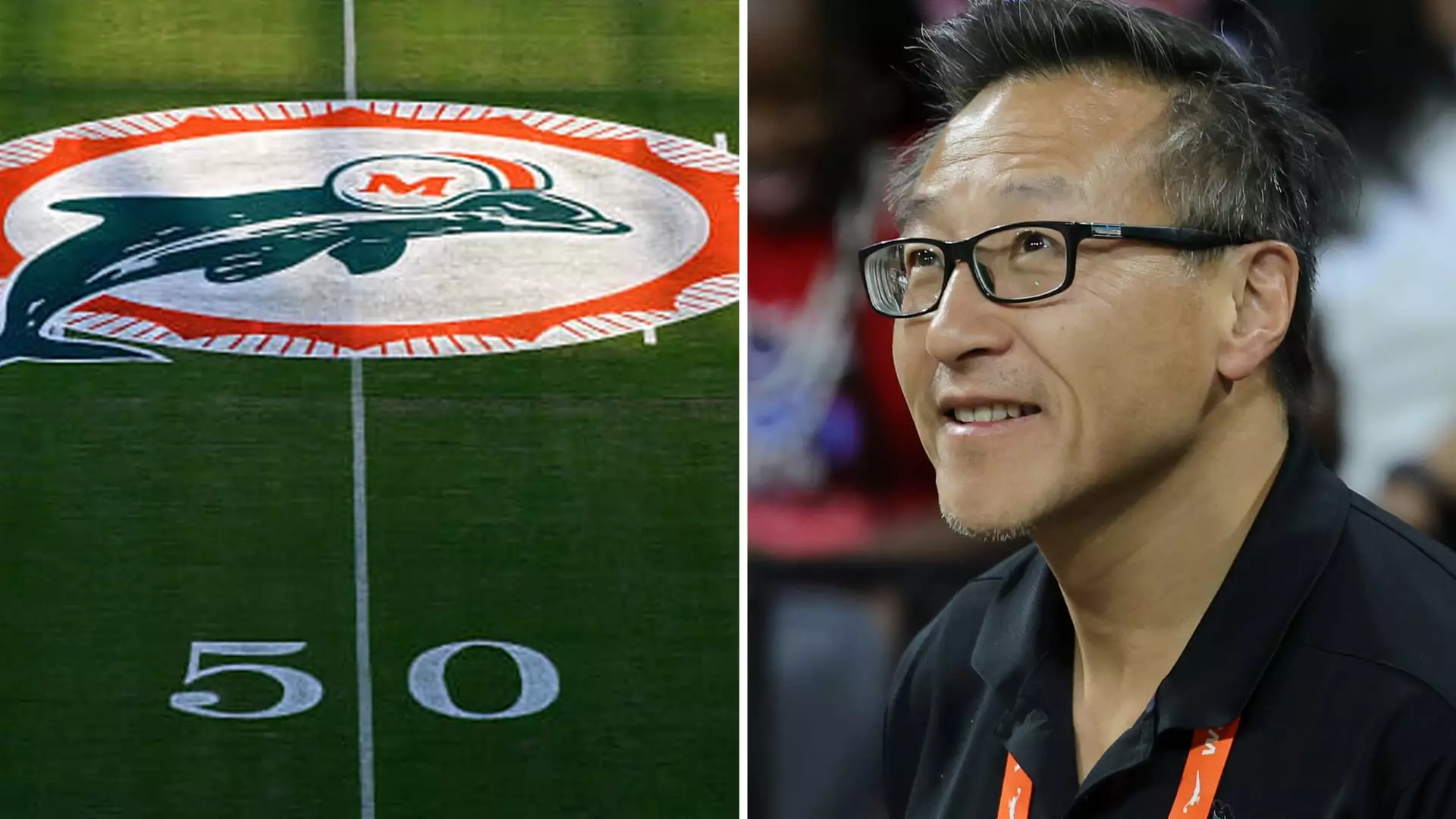The landscape of professional sports is changing significantly, notably in the realm of ownership and investment. The Miami Dolphins, one of the prominent franchises in the National Football League (NFL), are reportedly engaged in advanced discussions to sell a minority stake to private equity firm Ares Management and billionaire Joe Tsai. This development not only underscores the increasing trend of diversified ownership in sports but also raises questions about the financial dynamics within the NFL.
Recent negotiations indicated that the deal could potentially involve not just the Dolphins but also rights linked to Hard Rock Stadium, the Miami Grand Prix Formula 1 race, and a substantial portion of the Miami Open tennis tournament. Collectively, these assets have been valued at $8.1 billion, a significant amount reflecting the rising commercial value of sports franchises and associated venues.
To put this in context, valuations for controlling interests in NFL teams typically surpass $10 billion. These staggering figures reveal the robust financial ecosystem surrounding professional sports, a realm that has increasingly attracted wealthy investors looking to expand their portfolios. The Dolphins, valued at $7.1 billion — not inclusive of the stadium — rank as the eighth most valuable team in the NFL, according to CNBC.
According to insider sources, Ares Management is set to acquire a 10% stake in the franchise, while Joe Tsai, the influential figure behind the Brooklyn Nets, is negotiating for an additional 3% interest. This potential deal marks a significant moment as it would constitute the NFL’s first private equity investment following the league’s recent adjustment of financial regulations. The league’s acceptance of private equity involvement — previously a rare occurrence — reflects the evolving nature of sports ownership and the need for teams to secure fresh capital to remain competitive.
It’s crucial to note that while the sale of minority stakes can catalyze investment and broader engagement in teams, it also shifts the traditional dynamics of ownership. In the past, the NFL has been cautious about outside investments, preferring a more insular model dominated by individual billionaires or closely-held ownership groups. This evolution in policy allows for more varied financial backing and insights into the business operations of the league as a whole.
Stephen Ross, the current owner of the Miami Dolphins, purchased the team in 2009 for $1.1 billion. Now, nearly fifteen years later, he stands at a crossroads with potential financial gains from the new stake sale. Ross is known for leveraging broader real estate investments in South Florida, and sources indicate his intention to utilize proceeds from this transaction to enhance his real estate portfolio and further his sports investment endeavors.
What sets Ross apart from many other NFL owners is his dual role as an owner and operator of the Dolphins’ home stadium — Hard Rock Stadium. This gives him unique avenues for revenue generation; income from hosting events, including the Miami Grand Prix and the Miami Open, provides additional financial robustness, allowing him to invest back into the franchise.
In a notable prior instance, Ross turned down a record-setting $10 billion bid for control of the team. His inclination to maintain familial ownership underscores a commitment to a legacy that feels increasingly rare in modern sports, where many owners are more transient in their investments.
The NFL stands as the last major professional sports league to allow private equity investments, reflecting both an evolving business strategy and the pressures of contemporary economics driving team valuations. The shift indicates a recognition that in an era where teams are worth billions, private equity firms like Ares — which manages assets worth $450 billion — can provide essential financial resources that may otherwise be inaccessible to singular ownership structures.
As discussions unfold, the implications extend far beyond the Dolphins. The embrace of private equity could reshape ownership within the NFL, possibly paving the way for more collaborative and financially diverse models. How the participation of figures like Joe Tsai, with his growing sports empire, will ultimately influence the Dolphins and the league at large remains to be seen, but the trajectory hints at a more vibrant and multifaceted sports ownership environment.
The Miami Dolphins’ current negotiations represent a significant moment in sports history, showcasing the potential for new partnerships and investment strategies that could define the NFL for years to come. As more investors recognize the lucrative potential of sports franchises and associated ventures, the landscape of ownership is set to continue its profound evolution.


Leave a Reply